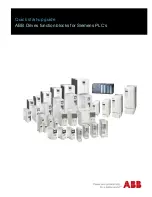ML620Q503/Q504 User's Manual
Chapter 12 Synchronous Serial Port with FIFO
FEUL620Q504 12–25
12.3.9 Receive Operation (Master Mode)
The master mode of the synchronous serial with FIFO starts by setting data in a transmission buffer.
Data needs to be set into a transmission buffer even master mode reception only.
Write the necessary values to SF0CTRL, SF0INTC, SF0BRR, and SF0TRAC, set the SF0MST bit to
Master mode, and set the SF0SPE bit to enable the SSIOF transfer.
When the data is written to SF0DWR, the SSIOF transfer is started.
The sync clock, which was set by the SF0CPOL, SF0CPHA, and SF0BRR0-1 registers, is output from the
SCKF0 pin.
On the SINF0 pin, the received data is sampled from LSB or MSB according to the SF0LSB setting and
stored in the receive FIFO. The receive FIFO Empty flag changes to 0 (RFE = 0).
The SF0SPIF bit is set each time the transfer of 1 byte is completed. (SF0SPIF=1)
If the number of data received in the receive FIFO is equal to or more than matches following the byte count
selected with SF0RFIC of SF0CR, SF0RFI of SF0SRR is set to generate a reception interrupt.
When the receive FIFO becomes Full, the subsequent reception is disabled. If the reception is performed in
this state, an overrun error interrupt is generated. (SF0ORF=1)
If the temporary data of transmit FIFO becomes empty and the transfer of the last byte is completed, a
transfer completion interrupt is generated. (SF0FI=1)
Figure 12-9 Master Mode (Receive Operation)
SSF0
SCKF0
SINF0
SF0SPE
write from
U16IF
read from
U16IF
SF0RFE
SF0RFF
SF0ORF
SF0TFD
SF0RFIC
SSIOF
interrupt
signal
0 2
0
1 1 2
SF0CTRL
data1
data5
3
0
3 4
SF0SRC
status
RFI
reception
interrupt
Receive data 1
Transfer data 5
2
4
SF0RFD
0
2
1
1
2
3
4
SF0SRC
status
data1
data4
3
2 1 0
3
ORF
overrun error
interrupt
Summary of Contents for LAPIS SEMICONDUCTOR ML620Q503
Page 2: ...ML620Q503 Q504 User s Manual Issue Date Apr 16 2015 FEUL620Q504 01...
Page 18: ...Chapter 1 Overview...
Page 32: ...Chapter 2 CPU and Memory Space...
Page 44: ...Chapter 3 Reset Function...
Page 50: ...Chapter 4 Power Management...
Page 70: ...Chapter 5 Interrupts...
Page 134: ...Chapter 6 Clock Generation Circuit...
Page 161: ...Chapter 7 Time Base Counter...
Page 170: ...Chapter 8 Timers...
Page 183: ...Chapter 9 Function Timer FTM...
Page 231: ...Chapter 10 Watchdog Timer...
Page 239: ...Chapter 11 Synchronous Serial Port SSIO...
Page 251: ...Chapter 12 Synchronous Serial Port with FIFO SSIOF...
Page 283: ...Chapter 13 UART...
Page 303: ...Chapter 14 UART with FIFO UARTF...
Page 327: ...Chapter 15 I2 C Bus Interface...
Page 344: ...Chapter 16 Port XT...
Page 350: ...Chapter 17 Port 0...
Page 361: ...Chapter 18 Port 1...
Page 368: ...Chapter 19 Port2...
Page 379: ...Chapter 20 Port 3...
Page 395: ...Chapter 21 Port 4...
Page 410: ...Chapter 22 Port 5...
Page 426: ...Chapter 23 Melody Driver...
Page 439: ...Chapter 24 RC Oscillation type A D Converter RC ADC...
Page 462: ...Chapter 25 Successive Approximation Type A D Converter SA ADC...
Page 479: ...Chapter 26 Analog Comparator...
Page 489: ...Chapter 27 Flash Memory Control...
Page 505: ...Chapter 28 Voltage Level Supervisor VLS...
Page 517: ...Chapter 29 LLD circuit...
Page 519: ...Chapter 30 On Chip Debug Function...
Page 522: ...Appendixes...
Page 552: ...Revision History...


















